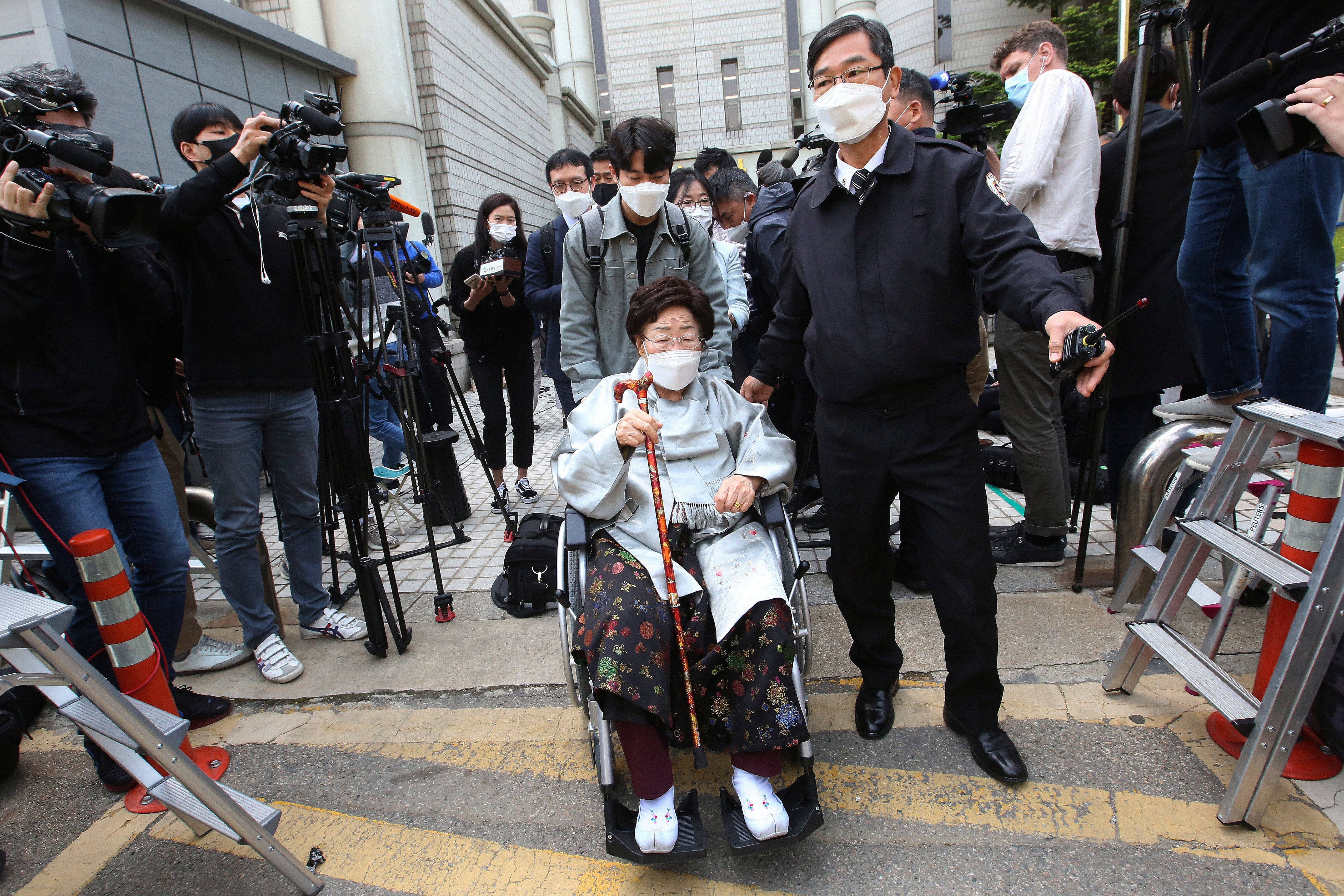Seoul court rejects sexual slavery claim against Tokyo
A South Korean court has rejected a claim by sexual slavery victims and their relatives who sought compensation from the Japanese government over their wartime sufferings

Your support helps us to tell the story
From reproductive rights to climate change to Big Tech, The Independent is on the ground when the story is developing. Whether it's investigating the financials of Elon Musk's pro-Trump PAC or producing our latest documentary, 'The A Word', which shines a light on the American women fighting for reproductive rights, we know how important it is to parse out the facts from the messaging.
At such a critical moment in US history, we need reporters on the ground. Your donation allows us to keep sending journalists to speak to both sides of the story.
The Independent is trusted by Americans across the entire political spectrum. And unlike many other quality news outlets, we choose not to lock Americans out of our reporting and analysis with paywalls. We believe quality journalism should be available to everyone, paid for by those who can afford it.
Your support makes all the difference.A South Korean court on Wednesday rejected a claim by South Korean sexual slavery victims and their relatives who sought compensation from the Japanese government over their wartime sufferings.
Activists representing sexual slavery victims denounced the decision and said the Seoul Central District Court was ignoring their struggles to restore the women’s honor and dignity. They said in a statement that the plaintiffs would appeal.
The 20 plaintiffs, including 11 women who were forced to work at Japanese military brothels during World War II and relatives of other deceased sex slaves, sued the Japanese government in 2016.
Japan had boycotted the court proceedings. The Seoul court ruled that the Japanese government should be exempt from civil jurisdiction under the principles of international law, according to South Korea’s Yonhap news agency.
Wednesday’s decision seemed to run against a largely symbolic ruling made by the same court in January, which had called for the Japanese government to give 100 million won ($89,000) each to a separate group of 12 women who sued in 2013 over their wartime suffering as sex slaves
Japanese officials had angrily rejected the January ruling, which was the first such ruling in South Korea, accusing Seoul of making “illegal” demands and undermining international law and bilateral relations.
Amnesty International issued a statement calling Wednesday’s ruling a “major disappointment that fails to deliver justice to the remaining survivors of this military slavery system and to those who suffered these atrocities before and during World War II but had already passed away, as well as their families.”
“This ruling runs contrary to a decision by the same court in January, which required Japan to accept legal responsibility for its systematic sexual enslavement that amounted to crimes against humanity and war crimes,” said Arnold Fang, Amnesty International’s East Asia researcher. “What was a landmark victory for the survivors after an overly long wait is again now being called into question.”
The ruling came as the Asian U.S. allies struggle to repair their relations that sank to post-war lows in recent years over history, trade, and military issues.
Japan insists all wartime compensation issues were settled under a 1965 treaty normalizing relations with South Korea in which Tokyo provided $500 million in economic assistance to Seoul.
Tens of thousands of women across Japanese-occupied Asia and the Pacific were moved to front-line brothels used by the Japanese military. About 240 South Korean women registered with the government as victims of sexual slavery by Japan’s wartime military — only 15 of whom are still alive.
Recurring animosity between South Korea and Japan over historical grievances could possibly complicate President Joe Biden s efforts to bolster three-way cooperation with U.S. regional allies, which declined under years of President Donald Trump’s “America first” approach, to coordinate action in face of China’s growing influence and North Korea’s nuclear threat.
Besides the impasse over sexual slavery, South Korea and Japan have feuded over South Korean court rulings that called for Japanese companies to compensate Koreans who were forced to work in factories during the war.
The countries have made little progress in repairing their relations despite South Korean President Moon Jae-in’s vow last month to build “future-oriented ties” with Tokyo. Fresh tensions have risen after Japan confirmed it would release treated radioactive water from the Fukushima nuclear plant into the ocean.
In 2015, South Korea’s previous conservative government reached a deal with Japan to “irreversibly” resolve the sexual slavery dispute. Under that deal, Japan agreed to fund a foundation to support victims in return for South Korea ceasing its criticism of Japan over the issue.
But Moon’s government took steps to dissolve the foundation after he took office in 2017, saying the 2015 deal lacked legitimacy because officials failed to properly communicate with victims before reaching it.
One of the plaintiffs in Wednesday’s case — 92-year-old Lee Yong-soo — has been campaigning for South Korea and Japan to settle their decades-long impasse over sexual slavery by seeking judgment from the U.N.'s International Court of Justice.
She has said it has become clear the issue cannot be resolved through bilateral diplomatic talks or rulings by South Korea’s domestic courts that have been repeatedly rejected by the Japanese government, and that the friction between governments has hurt friendship between civilians.
“Regardless of the verdict, we will go to the International Court of Justice,” she told reporters after Wednesday’s ruling.